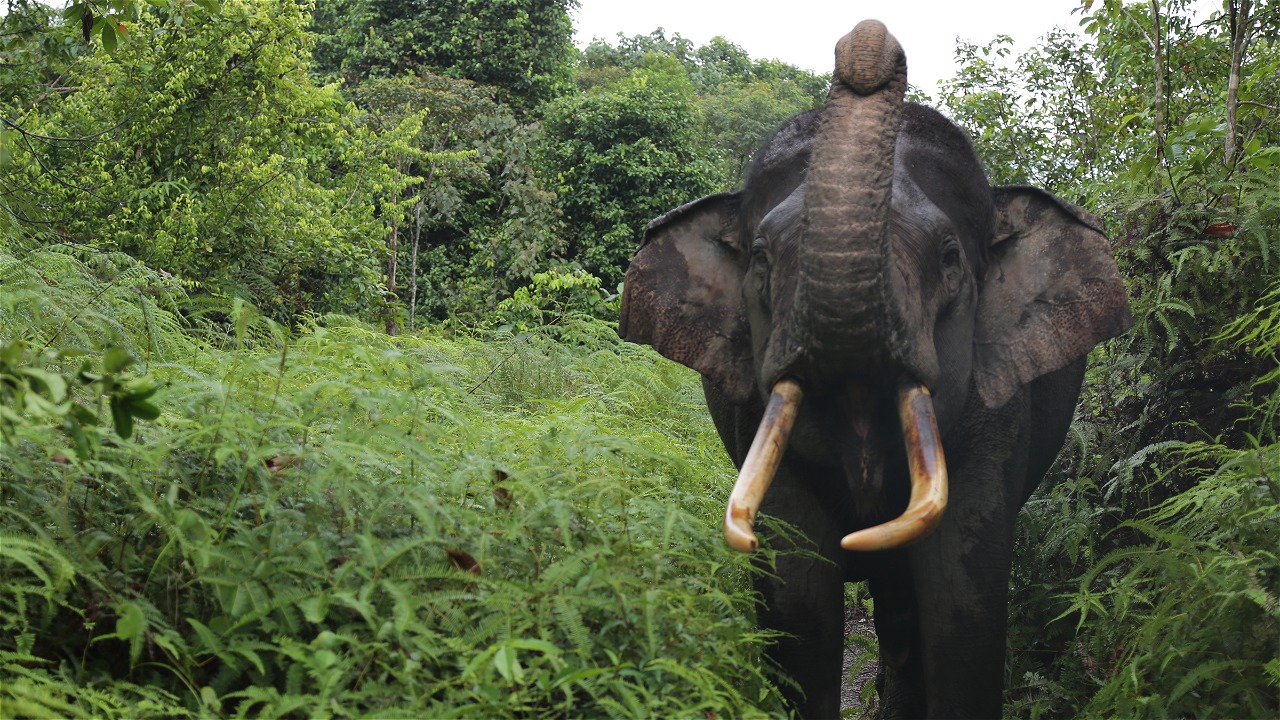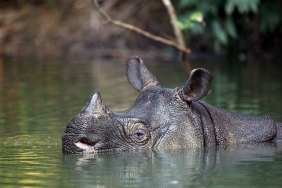THE STORY BEHIND ELEPHANT HEALTHCARE
By: Natalia Trita Agnika
The news of the birth of Harmoni Rimbo, a Sumatran Elephant in Tesso Nilo National Park was welcomed by many as it gives new hope for Sumatran Elephant conservation efforts as well as a reminder that humans need to share space for all creatures, including elephants. Harmoni Rimbo is the daughter of elephant Ria, a member of the Elephant Flying Squad.
Elephants are mammals with the longest gestation period. One individual elephant, generally carries a baby for more than 18 months and sometimes even reaches the age of two years. Understandably, an individual baby elephant can be born weighing about 150 kg and 90 cm tall. Of course, it takes a long time for him to grow up in the mother's womb.
We may wonder, how to take care of the health of a pregnant elephant? Since Ria is one of the elephants in the Elephant Flying Squad, she is well cared for by a veterinarian. The role of veterinarians in the Elephant Flying Squad WWF-Tesso Nilo National Park is as medical personnel who are required to monitor, handle, diagnose, and provide therapy and treatment.
The beginning of Ria's pregnancy was detected in May 2016 by the Flying Squad Team and veterinarians. This can be seen from her behavior which has a high appetite for food and drink and frequent urination. In addition, Ria's belly began to enlarge and walk slowly. Examination via ultrasonography (ultrasound) by drh. Annisa Wandha Sari (WWF-Indonesia) and drh. Muchlis (Pelalawan District Livestock Service Office) in May 2016 was conducted. And sure enough, Ria's elephant was indeed pregnant. Unlike the ultrasound examination of pregnant women, the ultrasound examination of elephants is done in two ways, through the abdominal wall (transcutaneous) and through the rectum (transrectal).
Ria's health is always monitored by a handler/mahout and a veterinarian. Like a pregnant woman, Ria's elephant is also given vitamin supplements, pudding, and fruits regularly. Ultrasound examinations are conducted every three months. From the last ultrasound, Ria is expected to give birth in January 2018. In addition to more attention to Ria's elephant, her patrol activities are also reduced during her pregnancy.
However, Ria elephant gave birth earlier than expected. Ria gave birth on (11/21). The day before giving birth, Ria's elephant showed no signs of giving birth. Even the day before, Ria's elephant was still draping welcome flowers on guests from WWF Singapore.
The birth of Harmoni Rimbo was first noticed by Ria's elephant mahouts, Yudi and Erwin Daulay. At that time, the mahout was about to go to the forest and bring Ria's elephant to Camp Flying Squad for periodic deworming. But upon arrival in the forest, Ria's elephant was already with her baby elephant. The Flying Squad team and drh. Wandha immediately went to the location to provide care and treatment.
Caring for the Flying Squad's pregnant elephants is part of some of the health care carried out on the elephants. On other Flying Squad elephants, veterinarians also physically check the elephant's health, give vitamins, and feed pudding twice a month. The pudding consists of broken corn, bran, brown sugar and mineral blocks that are cooked and then refrigerated overnight in a mold. "The purpose of pudding is to balance the elephant's nutrition as it contains carbohydrates, protein, vitamins, and minerals. In the wild, elephants may not be able to get these nutrients completely and sufficiently," explained drh. Wandha.
Meanwhile, to prevent disease, endoparasite examination of elephant feces is carried out every three months, giving deworming drugs every four months according to the dose from the veterinarian. To prevent EEHV (elephant endotheliotropic herpesvirus) disease, routine blood tests and complete blood tests are carried out every six months.
Another unique feature of elephant health care is also found in male elephants. There is a period that is unique to male elephants and does not occur in other animals. This period is called musth, which is a normal physiological phenomenon in elephants characterized by changes in behavior to become aggressive, physically looking grim and physiology is marked by excretion from the temporal glands on the head. Well, male elephants that musth are given special treatment by reducing the supply of protein-containing food and being cared for by two mahouts.
It turns out that taking care of elephant health is not an easy thing. Thank you for your support in keeping the Flying Squad elephants healthy. The Elephant Flying Squad team exists to mitigate human-elephant conflict for the preservation of Sumatran elephants in their natural habitat.





